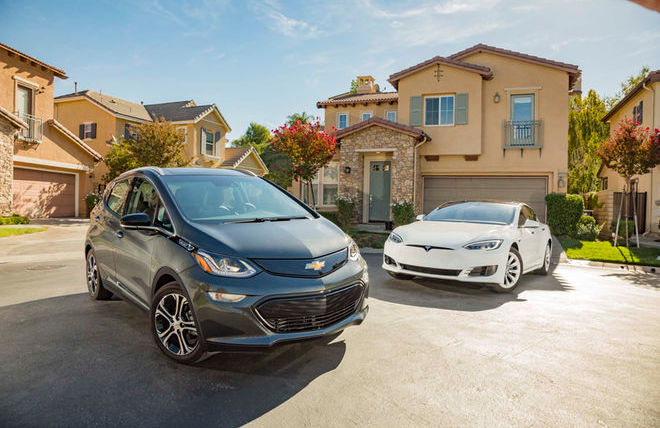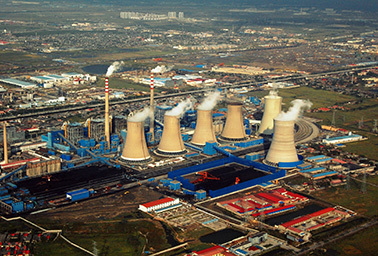The title says, Forget Glasgow. I don’t really mean that. Glasgow is important. And I know that some, or even many, will think I’m off my rocker for saying this, but it’s not the most critical factor on how quickly and how far we implement changes to our society that will mitigate climate change to allow our civilization to function with some semblance of what we enjoy today.
Commitments made and agreed upon in Glasgow help define a north star on where we need to go and a timeline. And it will help guide governments on deciding how to implement strategies that will provide incentives on getting us there. One good example is the tax credits in the Build Back Better Bill that just passed the House that will allow $12,000 for the purchase of some electric vehicles, $7,500 for others and expand the number of GM and Tesla vehicles that qualify for this. That WILL move the market.
But as I’ve said all along, follow the money. Profits are going to be what makes the difference. And consequences to the bottom line are becoming more and more apparent and closer at hand. Losing revenue and profit 20 or 30 years from now is one thing. But next year and the one following that, well, that’s something a bit more urgent and drives stock prices and executive compensation.
For my thinking there are two or three industries that are central to this concept: Finance and Banking, Insurance and Transportation. One could argue for energy as well but I think that the future of the energy industry is really dependent upon their being able to get financing and insurance and, to demand. So their destiny is not really in their hands.
Among the three industries mentioned above, the insurance industry may just be the linchpin in two regards. First, no business can survive or exist without insurance and it must be at an affordable price. Thus, raising rates or simply declining to cover say, a coal plant, can, will and is having a big impact. I have written recently about how insurance rates for residential properties in flood zones has been increased this year in some cases 10 times! The devastating and increasingly sever, frequent and costly natural disasters is having an enormous impact on insurance companies directly.
The other aspect that is critical to insurance companies performance is what they do with our premiums to make money. They have enormous portfolios of investments that in some cases at some times are the ONLY way that they make money. One of the articles featured today references a “survey, BlackRock spoke with 362 executives at insurance companies representing $27 trillion in investable assets across 26 markets.” The insurance companies are increasingly shifting those investments away from fossil fuel companies and others that are causing the climate crisis to ones that are solving it or likely to flourish in the new economy. With the rest of the finance industry doing the same, the outcome is pretty obvious.
Before getting to this week’s featured articles I’d like to add one more thing to consider. Some companies may not really be contributing much or any to increased releases of climate warming emissions such as CO2 or methane. But if their public perception isn’t that they are actively fighting the climate crisis the public will be less inclined to buy their products. For example, many companies are rushing to become carbon neutral ASAP and planning on how to use only renewable energy or electric vehicles in their fleets. While this might actually save them in expenses, what they are really after is positive public perception…and maybe even doing the “right” thing.
If you agree with my perspective I’d love to hear from you. Simply hit reply and give me a thumbs up or down.
Here’s the two articles about the insurance industry that sparked my topic this week. After that some more info on other topics I like to cover.
11/16/2021 in E&E News
Insurers Are More Jittery About Climate Risk, BlackRock Says
https://subscriber.politicopro.com/article/eenews/2021/11/16/insurers-are-more-jittery-about-climate-risk-blackrock-says-283236
“Insurers are getting increasingly worried about the perils of climate risk after a run of natural disasters, according to a report by BlackRock Inc.
The big majority of insurers now see climate as an investment risk and are positioning portfolios accordingly…For its survey, BlackRock spoke with 362 executives at insurance companies representing $27 trillion in investable assets across 26 markets.
As many as 95 percent of insurance executives who took part in study confirm that climate risk will have a major impact on how they build their portfolios over the next two years.”
E&E News 11/16/2021
New York Sends ‘Unequivocal’ Climate Signal to Insurers
https://subscriber.politicopro.com/article/eenews/2021/11/16/new-york-sends-unequivocal-climate-signal-to-insurers-283249
“Climate change is an urgent issue that poses wide-ranging and material risks to the financial system. Insurers, which are uniquely impacted as climate change affects both sides of their balance sheets, also play a critical role in managing climate risks,”
“The final guidance unveiled by the New York State Department of Financial Services says insurers based in the state need to do so in several ways. Principal among them: disclose the risks they face from extreme weather events and the clean energy transition; consider those same threats when making business decisions; and conduct scenario analyses to gauge climate change’s capacity to spur losses in the short-, medium- and long-term.”
The Weather:
| 11/16/2021 in E&E News
Atmospheric River Whips Northwest; 1 Missing, Roads Closed
“Flooding and landsides prompted the complete closure of the West Coast’s main north-south highway overnight yesterday near Bellingham, Wash., as the culmination of days of storms and high winds wreaked havoc in the Pacific Northwest.
The extreme weather was caused by an atmospheric river — a huge plume of moisture extending over the Pacific and into Washington state and Oregon. More than 158,0000 customers were without power in western Washington at one point yesterday afternoon.
Interstate 5 was closed near Bellingham, just south of the Canadian border, because of the ongoing threat from debris and floodwaters.
Schools were also closed yesterday. Evacuations were ordered in multiple areas as floodwaters swamped business districts and partially submerged cars in communities north of Seattle.”
From Bloomberg News November 17. 2021
Vancouver Is Cut Off by Road, Rail After ‘Extraordinary’ Storms
Vancouver Is Cut Off by Road, Rail After ‘Extraordinary’ Storms
“Vancouver, Canada’s third-largest city, is cut off from the rest of the country by land after days of storms caused flooding and mudslides that have blocked major highways and rail lines.”
“These are extraordinary events not measured before, not contemplated before,”
| 11/17/2021 in E&E News
With No Snow Yet, Arizona Snowbowl Delays its Opening Day
Transportation
Here’s an article about a cool new car that’s coming. But my primary reason for including it is, as always, another “expert”, this time from Automotive News, saying that EV adoption is going to happen sooner than is being predicted:
November 9, 2021
Lucid Air: Supercar Performance, Innovative Interior
https://www.autonews.com/blogs/lucid-air-test-drive-supercar-performance-innovative-interior
“I am more convinced than ever that EV adoption has the potential to happen much faster than skeptics and analysts believe.”
From Bloomberg Hyperdrive 11/11/2021
“The VW empire is gearing up to strike back. VW may build a new EV factory at its sprawling Wolfsburg headquarters to make some 250,000 cars a year. It’s also planning to design a new battery-powered model, code-named “Trinity,” that’s supposed to close the technology gap to Tesla, including with regard to automated-driving functions.”
““We’re in the midst of a major transformation in which we have to drastically change course,””
“Subaru on Thursday took the wraps off the Solterra, its first all-electric SUV, which the company jointly developed with Toyota. The automaker will market the model in the U.S., Canada, Europe, China and Japan by the middle of next year… The company…is aiming for 40% of its global sales to be electrified by 2030. By 2035, it wants all sales to be hybrids or EVs.”
And, like always, this schedule will be moved forward, not backwards.
Have a wonderful Thanksgiving. Debbie’s cooking for 20 at our home. All family and all local. We are extremely blessed for which we are so very thankful. Best to you and all your loved ones.



